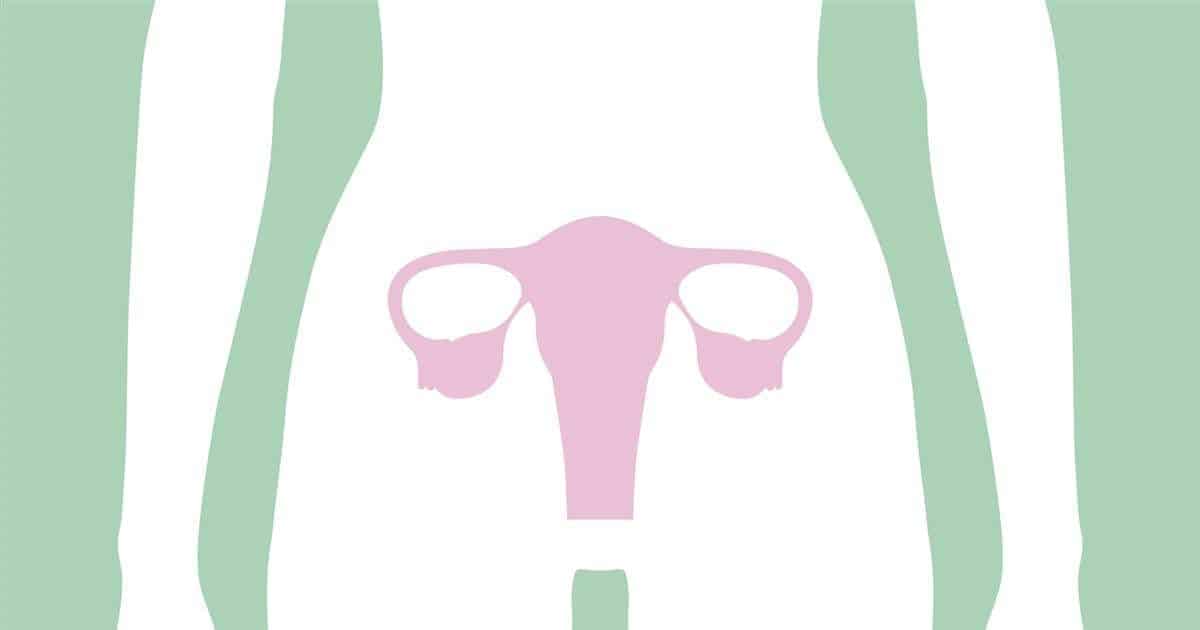Polycystic ovary syndrome, more commonly known as PCOS, is a condition several women around the world suffer from. It affects up to 27% of women during their childbearing years according to healthline, resulting in a range of different symptoms. If managed properly, this syndrome can be treated and any related health risks can be significantly reduced. Keep reading to learn about how three different women experience PCOS, as well as tips from the very well-known nutritionist, Zoha Matin

How PCOS Can Affect Different Individuals
PCOS affects many women, at different ages. Symptoms can vary from woman to woman, which is why we have gathered the experiences of three Pakistani women and their journey thus far.
“I was diagnosed with PCOS in my late twenties. After I missed my period, I went to my gynecologist who suggested I should take an ultrasound and start my treatment right away. Initially I would get my period on time but overtime, they became more irregular and sometimes I would not even remember my last period date. My symptoms mainly included weight fluctuations, sometimes weight loss, as well as fluctuations in my appetite.
After my diagnosis, I became more aware of my health and fitness. I am more inclined towards a well-balanced diet and exercising 4 days a week. Currently, I am on the glucophage pill and it has helped me regulate my hormones and period significantly.” – Sanam Islam
“I was diagnosed with PCOS when I was around 16 or 17, after my mum noticed that I was having excess hair growth, especially facial hair. As a teenager that was something that stood out, so we went and got some tests done and confirmed that it was PCOS.
Along with the visible symptoms, my bloodwork showed that I also had insulin resistance – another common PCOS issue which causes high blood sugar levels and leads to issues with weight loss, and can lead to more serious conditions such as diabetes. As a young person going into her college years, the last thing I thought I’d have to worry about was my health – but it had to become a priority to avoid more serious problems in the future.
So after my diagnosis and throughout my years at university in America, I kept a steady eye on my diet, worked out regularly and took birth control to help ease the excess hair growth. Though it took a lot of time, I’ve managed to get most of the symptoms under control through a combination of lifestyle changes and medication. Most recently, I decided to stop taking birth control because I felt I was unnecessary putting medications into my body for something that was now a minor issue. With the hair growth and insulin levels under control, I’ve focused even more on keeping my lifestyle as clean and PCOS friendly as possible.” – Alina Agha
“I started experiencing symptoms like anxiety, mood swings, extreme weight loss/gain, rapid hair loss, in 2014. My trigger was when my periods were six months late, and I was then diagnosed by a gynaecologist with PCOS, she recommended birth control pills which I took for approximately five years.
Throughout this, I continued to experience the extreme weight gain, mood swings, anxiety, and rapid hair loss. I also had severe acne. All these contributed to depression, which I believe was also accelerated by the birth control pills initially, as they altered the regulation of my hormone levels.
Moving forward, I incorporated intermittent fasting into my lifestyle, which means I do not eat from 8 pm to 12 pm. In the 8 hours that I do eat, I avoid gluten and dairy products as much as possible. I also began a course of Ovacitol, which is a homeopathic medicine, instead of birth control, and the medicines so far have helped with my mood swings and depression levels. Ovacitol is also known to improve egg quality and better menstrual regularity and ovulation; it also reduces cravings, and lowers insulin and glucose.
The advice I wanted to share was that PCOS can be reversed, so don’t lose hope. I know it is a difficult thing to manage and pours into your daily life, but there are many habits in your control that can at least help with your experience.“ – Imaara Dharani

A Nutritonist’s Insight
Local nutritionist Zoha Matin, with an academic background from McGill University, discussed PCOS at length with us and gave us several tips on how to manage it with your diet and lifestyle choices. Below are some of the points she raised:
Zoha Matin’s 3 Key Tips For Someone With PCOS
- The majority of women with PCOS have insulin resistance. Therefore it’s very important to manage your insulin levels with a healthy diet and regular physical activity. Experts recommend a minimum of 150 minutes of physical activity/ exercise per week.
- It is often reported that women with PCOS have more intense sugar and carbohydrate cravings. It is important to sleep well (at least 7-8 hours per night), drink minimum 2 L water per day and eat balanced meals and snacks – which means pairing carbohydrate foods with some protein and/or fat in each meal and snack, to help stabilise blood sugar levels and manage cravings.
- Many women with PCOS struggle with their weight. Insulin is a very powerful growth hormone that promotes weight gain, sometimes despite diet and exercise efforts. It is important to realise that weight gain may not entirely be your fault, and your chronic medical condition (PCOS) is playing a role here. It’s important to cultivate positive body image, and not opt for extreme diets out of desperation. Extreme dieting can harm one’s health long-term, and the better approach is to go for gradual healthy weight loss with a reduced-calorie balanced diet. There is no need to eliminate any food groups. Extreme dieting may lead to disordered eating behaviours, a very poor relationship with food and psychological harm.
Maintaining A Healthy Diet With PCOS
- Avoid refined carbohydrates – They cause inflammation, and can make insulin resistance worse. They include white bread, white pasta, muffins, sugary desserts, and anything made from white flour.
- Limit simple sugars as much as possible – This includes alternatives that are sometimes considered healthier such as brown sugar, honey and agave. When reading food labels, be sure to look for sugar’s various names such as sucrose, high fructose corn syrup and dextrose. If sugar is one of the first 3 ingredients on an ingredients list of a food or beverage package, then that product should be avoided.
- Limit red meat and processed meats. This includes sausages, sandwich meat slices, nuggets, etc.
- Focus on including a lot of fibre in your diet. Foods high in fibre include whole grains, daal, beans, chickpeas, fruits, vegetables, nuts and seeds. Fiber helps keep you full after a meal and it is shown to help with weight loss in women with pcos. You must aim for a minimum of 25 grams of fibre per day.
The Do’s And Don’ts
- To manage cravings and stabilise blood sugar levels in women with PCOS, it is important to not skip meals and not go more than 4-6 hours in the day without eating. Eat small meals and snacks at regular intervals throughout the day.
- Eat a low glycemic index (Low GI) diet. This has shown to significantly help women with PCOS manage their blood sugar and insulin levels. The glycemic index (GI) is a measurement of how quickly a particular food raises blood sugar.
- Take an omega-3/ fish oil supplement and include healthy mono-unsaturated fats in your diet.
- Eat tomatoes, dark green vegetables (like spinach and broccoli), and berries often.
- Have green tea often.
- You do not need to cut out dairy or gluten to improve your PCOS. There is not enough evidence that supports cutting out dairy or gluten to improve PCOS, although these claims are popular on the internet.
- Avoid/limit deep fried foods and fast food.
Managing A Healthy Diet
- Adopt the very effective practice of ‘mindful eating’ to avoid overeating.
- Once in a while, you can enjoy treats in moderation – treats don’t have to be off-limits forever. The most important thing is to limit the portion size of your treat foods and enjoy them occasionally.
- A healthy diet can be delicious too! Try some nice recipes, use interesting flavour combinations and make healthy swaps for your favourite dishes. For example – if you’re craving a burrito bowl: opt for brown rice instead of white, and greek yogurt instead of sour cream. When you have a craving for chips, opt for home-popped popcorn. Bake potato wedges or air-fry them instead of deep frying. Learn what some healthier swaps could be for your favourite snacks and meals.
Diet And PCOS
Diet is one of the main therapies for managing this chronic condition by improving hormonal regulation in the body and preventing the long-term diseases that can develop more frequently in those with PCOS (like type II diabetes, heart disease and endometrial cancer). Diet will not cure pcos – as there is no cure, but it does help to significantly improve the condition.
For overweight women, even as little as a 5% reduction in their body weight can lead to significant improvements in their condition. So weight loss (by going on a healthy reduced-calorie diet (ideally paired with some exercise)) can improve PCOS symptoms.
Benefits of switching to a healthier diet for women with PCOS: weight loss, improved insulin metabolism, more regular periods, reduced levels of male hormones and male-pattern hair growth and lower cholesterol levels.
Nutritional Tips That Could Aid In The Regulation Of Periods
- If you are overweight (BMI greater than 24.9), then lose weight.
- Eat fish 2-3 times per week, and include olive oil, and nuts and seeds often in your diet.
- Some supplements have been shown to help with regulating periods and improving fertility in women with PCOS. These include inositol, fish oil, cinnamon, evening primrose oil and N-Acetylcystein (NAC).








What do you think?
You must be logged in to post a comment.